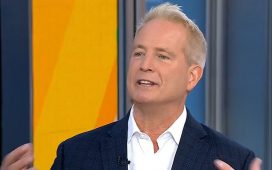Receive free Scotland updates
We’ll send you a myFT Daily Digest email rounding up the latest Scotland news every morning.
Scotland’s population grew by 2.7 per cent in the past decade, the slowest rate of any part of the UK, according to official figures published on Thursday that highlight the country’s demographic challenges.
National Records of Scotland said that the 2022 census showed that while the population had hit a record 5.44mn, the growth rate had declined by almost 2 percentage points from 4.6 per cent between 2001 and 2011.
The statistics body said the country’s population would have declined by almost 50,000 without migration. The number of people aged 65 and over jumped by 22.5 per cent to 1.09mn, equivalent to one-fifth of the total population and higher than the 18.6 per cent recorded in England and Wales last year.
The data is likely to intensify concerns in Scotland about depopulation and labour shortages in rural areas, which the governing Scottish National party has blamed on Brexit.
The pro-independence SNP has argued that ending Scotland’s 316-year union with England would enable it to rejoin the EU and restore freedom of movement with the bloc.
Scotland’s 2.7 per cent rate of population growth for 2011-2022 compared with 6.3 per cent in England and Wales and 5.1 per cent in Northern Ireland between 2011 and 2021.
The once-in-a-decade count in Scotland was delayed by a year because of the Covid-19 pandemic and marred by lower participation rates.
Angus Robertson, cabinet secretary for the constitution, said the census data “reinforces just how damaging Brexit continues to be for Scotland with the loss of freedom of movement”.
The survey showed that people aged 65 and over outnumbered those under 15 by more than 250,000 last year — a turnaround from 1971, when there were twice as many people under 15. The groups were broadly similar in size by 2011, NRS said.
Scotland’s slower population growth comes despite a surge in UK-wide immigration and has raised questions about how the country, which ran a budget deficit of 9 per cent of gross domestic product in the 2022-23 fiscal year, will fund increased demand for health and social care.
The Scottish Fiscal Commission, the spending watchdog, in March estimated that rising costs and an ageing population will push health to about 50 per cent of the devolved administration’s spending in 50 years’ time, up from about one-third now.
Critics have accused the SNP government of making Scotland unattractive to potential newcomers by increasing taxes for high earners.
Donald Cameron, the Scottish Conservatives’ shadow secretary for the constitution, said it was “vital we attract more people to Scotland to staff our under-resourced NHS and boost economic growth, but the SNP’s obsession with higher taxation and their failures in public services are all bad signs”.
Separate research released on Thursday by Migration Policy Scotland found that 38 per cent of Scots wanted immigration to go up, compared with 28 per cent who wanted it to fall. In 2014, 58 per cent wanted immigration to fall, the charity said.










